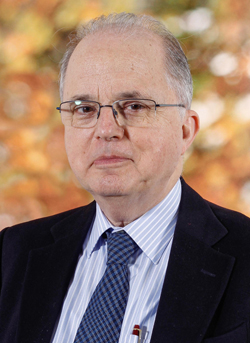News
LATEST NEWS AND EVENTS FROM THE SCHOOL OF ENGINEERING
There is no shortage of teachers
Juan Flaquer. Professor Emeritus de Tecnun-University of Navarra

We reproduce below the article opinion of Professor Emeritus of Tecnun, Juan Flaquer, which on the occasion of World Teachers' Day has been published in several media.
"It is really difficult to predict what will happen in university classrooms in the next ten years. Constructively put, where do we go from here in order to be on the crest of the wave of innovation in education, without being swept away by that wave, both teachers and students?
The traditional teaching of master classes - taught on a blackboard with chalk and blackboard - is now seen as outdated. Bologna has promoted a greater role for students and encourages students - in addition to knowledge - to acquire new skills that will enable them to adapt to professional changes in the future.
In this context, new technologies are bursting in with force. It is rare to find a teacher who does not deploy audiovisual media on classroom in order to make the most of the classes, or to implement computer applications that facilitate the understanding of the concepts explained. Moreover, non-face-to-face classes are taking center stage and the role of teachers is being increasingly questioned. What do teachers contribute to classroom if knowledge is already available on the web? Will we soon see them replaced by robots equipped with artificial intelligence?
To answer these questions we would have to ask ourselves what we mean by university learning. Of course, technology has allowed -especially through the Internet- universal access to quality education. However, in my opinion, direct communication with the professor remains crucial for the students' professional development and staff . The teacher transmits emotion, passion for what he/she teaches, example staff, motivation. All this is captured by the student, which leads him to grow in his interest in the subject and to improve his knowledge to keep up with what he is receiving. The student's attention and learning Degree - in the presence of a real teacher - increases with the experience of what he/she communicates. A teacher should not only transmit knowledge. Students learn a lot from teachers who "believe" in their own subject, enjoy it, look for their students to share their emotions and discoveries, in final, see dedication to their task.
What emotions would a teacher feel if his students were robots in human form? Or, conversely, what would students feel if their lessons were taught by a robot? Dehumanisation would be the order of the day.
A promising line of teaching -still not sufficiently experimented- starts from conceiving class as a group of students motivated by the realization of the same project. This is called project-based or challenge-based learning. The teacher plays the role of moderator in the classroom. Beforehand, he/she sets out the common goal , tells them where to find what they need, guides them on what they have to study and, with all this background, they can compare their proposals with the teacher. In the classroom doubts are resolved, concepts are clarified, emphasis is placed on the most important ideas, and everyone - the teachers with their students - are aware of the steps that are being taken in common. It is evident that the teacher - in the aforementioned model educational - takes on a greater involvement and requires from him or her an additional effort to the classic lessons of classroom and a greater involvement staff.
If teaching were to pursue only knowledge, the machine-human battle would be lost. However, if we understand teaching as an environment where teachers and students exchange knowledge and experiences, as well as learn together, it is not a lost battle.
There is no shortage of teachers. A teacher, nowadays, is not only asked to use the latest technological innovations, but also, and more importantly, his dedication staff in the learning of his students".
